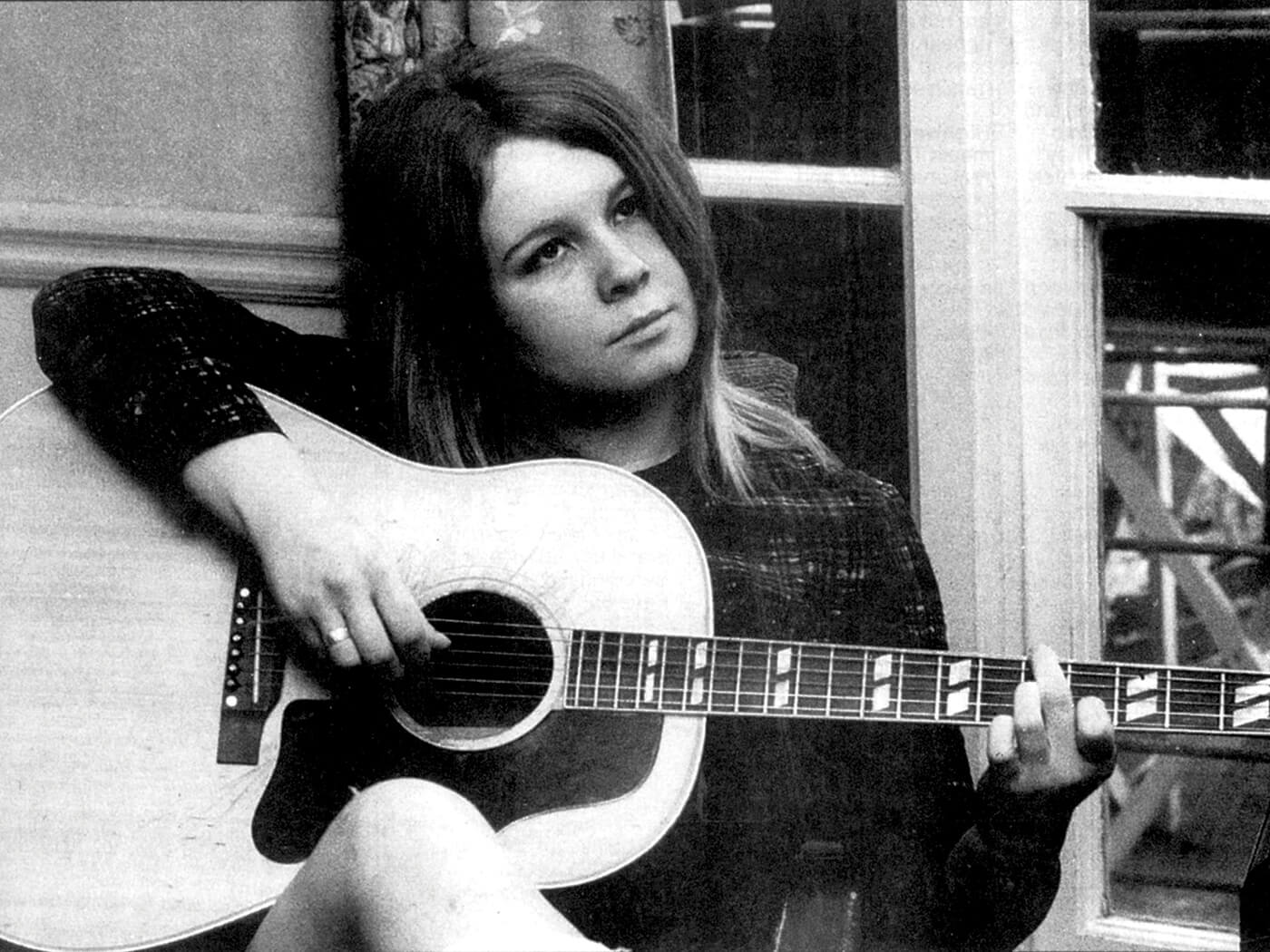The market in Sandy Denny’s pre-Fairport Convention recordings has been increasingly well served in recent years. Who Knows Where The Time Goes?, the first major retrospective of the late English folk singer, who died in 1978, started the ball rolling in 1985 with the inclusion of a handful of early home demos. It was followed by The Attic Tracks, a coveted cassette-only Australian release from the late ’80s. In 2004 came A Boxful Of Treasures and in 2010 an epic eponymous boxset which covered pretty much every inch of Denny’s oeuvre across no less than 19 CDs. Recordings Denny made in 1967 with Alex Campbell and The Strawbs have also been re-released several times over.
In terms of basic housekeeping, everything on this double vinyl Record Store Day release, authorised by the Denny estate, has previously been available elsewhere. Its 27 solo tracks essentially replicate all of disc 12 and two tracks from disc 13 of the mammoth Sandy Denny box which, though exhaustive, was given only a limited release and quickly became prohibitively pricey.
Though dedicated fans may have heard most or all of this material before, it’s the first time the majority of these tracks have been issued on vinyl (there is also a CD version). For the more selective or less solvent listener, Early Home Recordings provides a concise, accessible overview of the evolution of Denny’s artistry between 1966 and 1968, spanning the period when she was first establishing herself in London folk clubs to the months immediately after she joined Fairport in May 1968. The inner gatefold sleeve includes informative liner notes by Pat Thomas, who curated the release, though he needlessly denigrates some of Denny’s contemporaries in the process of rightly trumpeting her brilliance.
What emerges is a dual portrait. Denny is captured as an interpreter of songs ancient and new, as well as a budding singer-songwriter in her own right. Aged 19, she kicks off in 1966 with two songs written by her boyfriend of the time, tempestuous American folkie Jackson C Frank, making a particularly fine fist of his signature song, “Blues Run The Game”. Elsewhere, she covers Bert Jansch (“Soho”), and offers up a beautiful, hushed take on Fred Neil’s “A Little Bit Of Rain”. In contrast, attempts at two songs written by her friend and fellow free spirit Anne Briggs – “Go Your Own Way My Love” and “The Time Has Come” – seem halting, almost tentative. The pick of this crop is a tender, transformative reading of Bob Dylan’s “It Ain’t Me Babe”, a song Denny would sing many times, here presented as a masterclass in tone and dynamics, highlighting the width of her vocal range.
The traditional material is generally a little less compelling. Such staples from the US, British and Irish trad. arr. repertoire as “Motherless Children”, “Seven Virgins”, “She Moves Through The Fair” and “Cradle Song” were ten-a-penny in the folk clubs of the time, and Denny’s versions feel a tad dutiful, a haunting “Let No Man Steal Your Thyme” notwithstanding.
Scattered among these interpretations are the earliest flowerings of Denny as a composer, 10 originals which include songs she never professionally recorded or released. You can hear why in the case of the gloomy “I Love My True Love” and derivative “Ethusel”, but “Gerrard Street” is an appealing blues stroll through London’s bohemian underbelly, while
“In Memory (The Tender Years)” is pretty, if slight.
Also featured is the very earliest recording of “Who Knows Where The Time Goes?” from 1967, one of two versions featured. Played in open tuning, bouncing along to an uncertain rhythm and sprightlier than it would later become, it doesn’t quite access the full range of the song’s magnificent melancholy but is fascinating, nonetheless. Another highlight is “Boxful Of Treasures”, a lovely embryonic version of “Fotheringay” – a fine rendition of which is also included here in its finished state.
If Denny’s songwriting is still a work in progress, her voice is already a mesmerising instrument. Heard here in an unadorned setting with only her own – excellent – guitar playing as an accompaniment, it shines and shadows with unerring instinct. All of these tracks were taped on rudimentary home recording equipment, but the sound quality is generally decent; oddly, the seven 1966 recordings are cleaner than the later ones, some of which flirt with distortion when the volume creeps up. Though there are a few tuning issues, and the performance of “Motherless Children” ends abruptly with a male voice speaking in the background, none of the domestic idiosyncrasies hamper the listening experience. For anyone who has ever dreamt of having Sandy Denny sing in the corner of the room for an hour or so, this welcome release might be as close as we’ll get.

